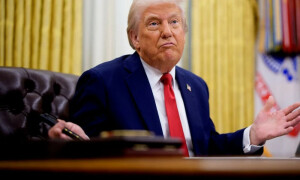Its started buzzing again. As the deadline nears for the implementation of RGST, the politics of taxation has dominated airtime and the headlines. With battle lines clearly drawn, just over ten days might not be enough to shore up support and pass five bills through the assemblies. But then again, you never know.
While much is being spoken and written about the contentious tax, experts feel that the pertinent issues are dropping off the wayside. The Tax Bill 2010, is largely similar to the Sales Tax Act of 1990. The only difference is the removal of distortions that poor policy making has allowed in over the years.
First off, producers of goods are made to pay tax on the basis of retail prices, according to the Third Schedule of the Sales Tax Act of 1990. Effectively, this measure places the wholesalers and retailers out of the tax ambit. Arguably then, they are up in arms against the new taxes.
Another corridor open to the grey economy, is taxation of imported goods at customs. Presumptive tax requirements charge a higher tax rate, which leads to under-invoicing and therefore a mismatch in the input tax adjustment at the retail stage.
Finally, exemptions are granted to export sectors instead of zero rating exports. Tariff regimes around the world allow relief on exports, but in Pakistan the entire chain of production for the major export sectors has been exempted because of weaknesses in the tax collection system.
And now that exemptions are being discussed, the oft-heard discussion is that RGST is inflationary. "It is important to judge the impact of reduction in tax rate versus broadening the tax base before making such comments there are no more than 10~12 items where inflationary impact might be witnessed", said tax expert Shabbar Zaidi, at a seminar organised by the AERC, at the University of Karachi, yesterday.
Lawmakers must face the lobbies of industrialists, wholesalers and the traders before the RGST will become law. And if the pressure mounts, one can be sure that the government will withdraw the bill yet again.
Such a scenario will result in withdrawals of regulatory orders by the Chairman of the FBR to revert to the distortion free Sales Tax Act of 1990. Mind you, if that happens, there will be no reduction in the rate of tax from 17 to 15 percent.
BR100
12,239
Decreased By
-154.2 (-1.24%)
BR30
36,393
Decreased By
-714.3 (-1.92%)
KSE100
114,153
Decreased By
-1379.3 (-1.19%)
KSE30
35,200
Decreased By
-461.3 (-1.29%)





















Comments
Comments are closed.